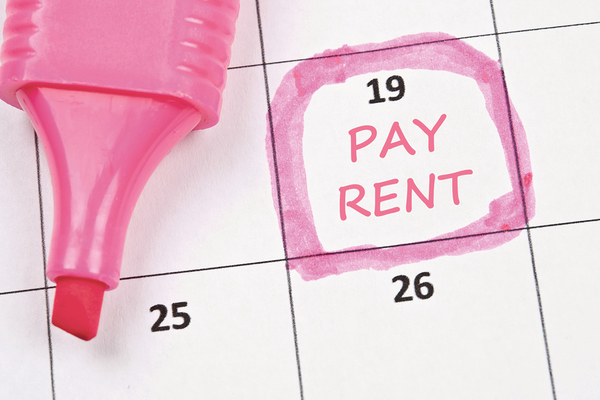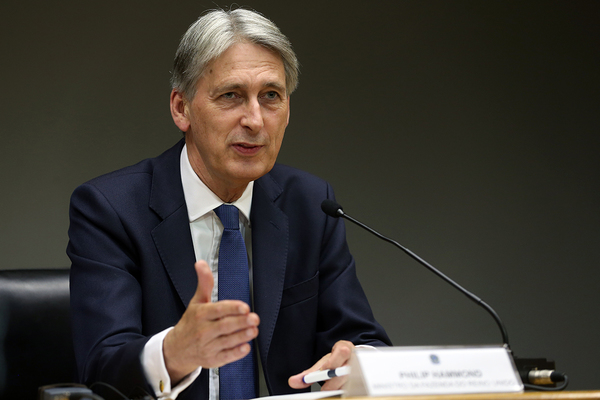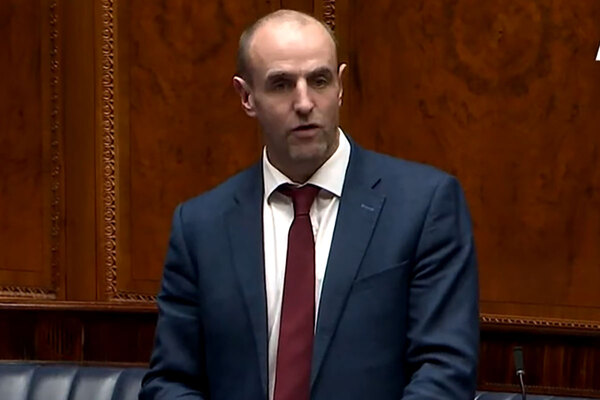You are viewing 1 of your 1 free articles
 Campbell Robb
Campbell RobbBefore ...more
Ministers must target housing policy towards people on lower incomes
New research from the Joseph Rowntree Foundation shows why rents need to be affordable to those on lower incomes. Campbell Robb explains more
The readers of Inside Housing need no reminder that the UK faces a housing crisis.
But despite increasing concern from politicians that unaffordable housing is contributing to the destruction of their constituents’ living standards, we have yet to see action on the scale that is needed to really address the problem.
Next week’s Autumn Budget is an opportunity to offer real help to people struggling to afford a suitable, secure home. Of course, at the root of this lies a severe problem with supply.
The UK must build more homes, and must make sure that they are genuinely affordable for people in different circumstances and on different incomes.
“Unaffordable housing is a key part of a living standards crisis.”
We cannot get out of the current crisis by focusing only on helping people on higher incomes who are in a position to buy to make their first step onto the housing ladder.
Unaffordable housing is a key part of a living standards crisis set to hit many low-income families over the course of this parliament.
New research published by the Joseph Rowntree Foundation (JRF) shows that, by 2022, single-earner families with children will be further away from the income level they need for a decent living standard, even if they are able to access low-cost council housing.
Analysis carried out by the Centre for Research in Social Policy at Loughborough University for JRF finds that although a rising National Living Wage and changes to the income tax threshold will mean that some people can expect to see their living standards rise, these gains are concentrated among households who have more money coming in in the first place.
“To protect living standards, the Budget must prioritise people who are struggling to get by.”
If people are earning the National Living Wage, workers without children will be £1,150 better off and families with two working parents will be £1,100 better off by 2022, the year of the next election, despite rising prices and cuts to benefits.
However, they will still be below the level that they need to reach the Minimum Income Standard – the amount the public say is needed for a decent living standard.
A single worker in a privately rented home will be £800 short of the level the public says they need, while a family of four with two parents in work will be £450 short even if they are able to access local authority housing.
By the same year, families with one parent working for the National Living Wage will be worse off as benefit cuts and the impact of rising prices outweigh their gains from a rising National Living Wage and income tax threshold.
“The chancellor could use the Budget to reset the Local Housing Allowance.”
A lone parent working full time for National Living Wage will be £700 worse off, leaving them £3,350 per year away from the amount they need for an acceptable living standard. A couple family with one parent in work will be £350 worse off, leaving them £4,500 away from what they need.
All households who are out of work will be significantly further away from a decent standard of living.
To protect living standards, the Budget must prioritise people who are struggling to get by.
In the UK today, there are 4.7 million private sector tenants who are living in poverty after their housing costs are paid for, with even the cheapest private rents available costing more than most low-income tenants can actually afford.
After housing benefit is taken into account, people in the bottom fifth pay, on average, more than a third of their remaining income on rent – the highest proportion a typical household can afford.
By contrast, the richest fifth of private renters spend an average of 19% of their income on their rent.
To make a difference to those who are struggling most, the government must target its housing policy towards people on lower incomes.
Along with other working-age benefits, housing benefit has now been frozen.
The chancellor could use the Budget to reset the Local Housing Allowance so that it covers the bottom 30% of local rents – as it is intended to – and then uprate it with local rents.
“Families have to try and meet growing shortfalls from income intended to meet other basic costs of living.”
Cuts to housing benefit since 2011 have meant that 600,000 people in the private rented sector, most of them in families with children, face a shortfall between their income from housing benefit and their rent.
Families have to try and meet these growing shortfalls from income intended to meet other basic costs of living.
Ultimately, the only sustainable solution to the housing crisis facing those on low incomes lies in building many more genuinely affordable homes.
The Living Rents Development Framework, created by JRF, Savills and the National Housing Federation, would link rents to the bottom quarter of local earnings, making prices affordable to people on low wages.
It would also increase the number of new homes built to 80,000 a year.
Ending the housing crisis in the UK will not be easy. But when the country next goes to the polls, the government will not want to enter the debate off the back of five years of falling living standards.
This week’s Budget must prioritise people who struggling, or risk leaving those on low incomes behind.
Campbell Robb, chief executive, Joseph Rowntree Foundation











